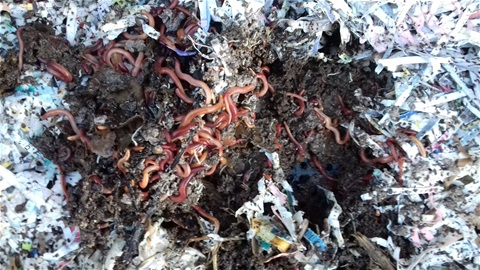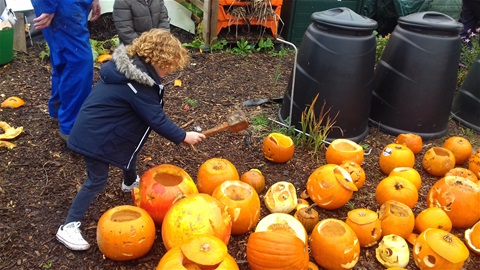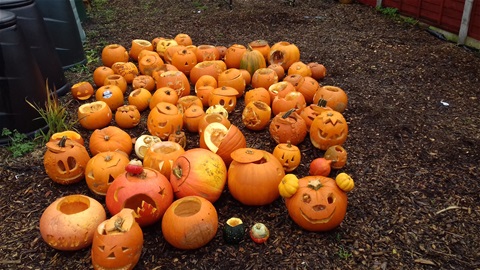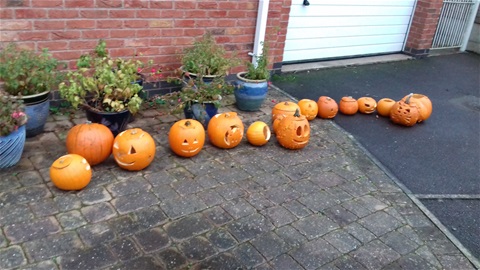Worm ball
The heading does not refer to a dance attended by worms but the ball of worms that may form in response to adverse conditions in a wormery or compost bin. This ball was formed overnight when the temperature dropped below freezing before the bin had been insulated or moved into an outbuilding.
Worms are also thought to form balls when faced with other unfavourable environmental conditions. The theory being that under these circumstances the balls offer a form of protection. It has been found any "stressor" can result in them balling up. In addition to a sudden drop in temperature these can include:
Rise in Compost Temperature
The optimum temperature range for composting worms is 12 - 24°C and will they not survive above 35°C. They will try to escape the heat in compost, during the thermophilic phase of hot composting by moving to the lower levels of the bin or back into the ground.
Unfavourable moisture levels
Excess Moisture where the composting material is too wet, and air cannot circulate freely as a consequence it may turn anaerobic and the worms migrate to the top of the bin in order gain access to oxygen so that they can breathe.
It is said that worms may also “ball” if the compost is too dry. I have not experienced this and feel that if the organic material in a compost bin is too dry the worms will remain in, or migrate to, the soil. However, it may be a problem in a wormery or a sealed composting system the answer is to add water or the “sludge” from home-made compost tea or plant food but not so much liquid that the wet bedding heats up as warm bedding is undesirable in a wormery.
Worms are also thought to form balls when faced with other unfavourable environmental conditions. The theory being that under these circumstances the balls offer a form of protection. It has been found any "stressor" can result in them balling up. There is more information at Worms in Compost



